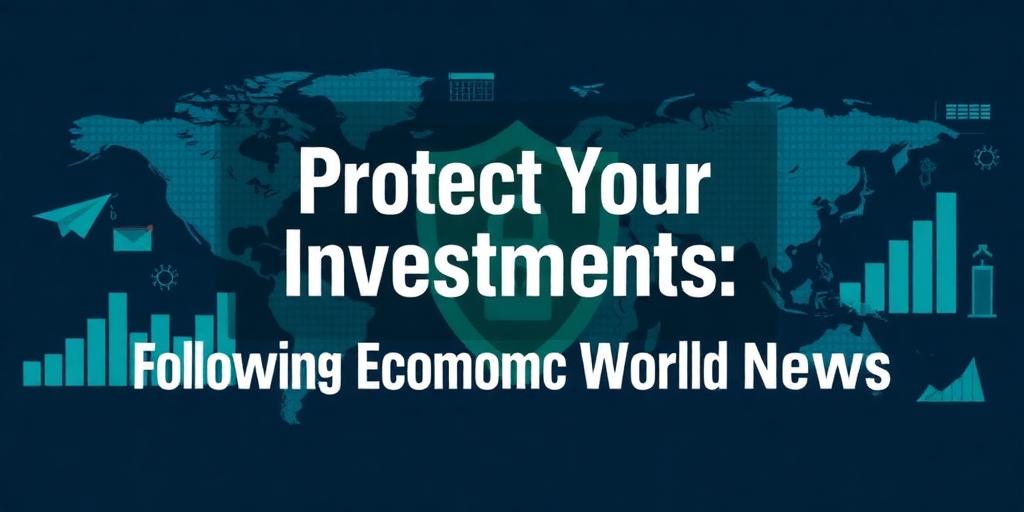Protect Your Investments: Following Economic World News
In today's interconnected world, economic events in one country can ripple across the globe, impacting investment portfolios everywhere. Staying informed about these developments is crucial for making sound investment decisions and protecting your assets. This guide will explore the importance of monitoring economic world news and provide practical tips for incorporating it into your investment strategy.
Why Follow Economic World News?
- Market Volatility: Economic news often triggers market volatility. Announcements about interest rates, inflation, and trade agreements can cause significant price swings in stocks, bonds, and currencies.
- Risk Management: By staying informed, you can better assess potential risks to your investments. For example, a looming recession in a major economy could signal a need to reduce exposure to certain sectors or regions.
- Opportunity Identification: Economic news can also reveal opportunities. A country experiencing rapid growth may present attractive investment prospects.
- Informed Decision-Making: Ultimately, staying abreast of economic developments empowers you to make more informed decisions aligned with your financial goals and risk tolerance.
Key Economic Indicators to Watch:
- Gross Domestic Product (GDP): GDP measures the total value of goods and services produced in a country. It's a key indicator of economic growth.
- Inflation Rates: Inflation reflects the rate at which prices are rising. High inflation can erode the value of investments.
- Interest Rates: Central banks use interest rates to control inflation and stimulate economic growth. Changes in interest rates can impact borrowing costs and investment returns.
- Employment Data: Employment figures, such as the unemployment rate and job growth, provide insights into the health of the labor market.
- Trade Balances: Trade balances reflect the difference between a country's exports and imports. Large trade deficits can indicate economic vulnerabilities.
- Geopolitical Events: Political instability, trade wars, and international conflicts can have significant economic consequences.
How to Stay Informed:
- Reliable News Sources: Subscribe to reputable financial news outlets like The Wall Street Journal, Financial Times, Bloomberg, and Reuters.
- Central Bank Communications: Monitor statements and reports from central banks, such as the Federal Reserve (U.S.), the European Central Bank (ECB), and the Bank of England (BoE).
- Economic Calendars: Use economic calendars to track upcoming data releases and events.
- Financial Advisors: Consult with a financial advisor who can help you interpret economic news and its potential impact on your portfolio.
Incorporating Economic News into Your Investment Strategy:
- Diversification: Diversify your investments across different asset classes, sectors, and geographies to reduce risk.
- Long-Term Perspective: Avoid making knee-jerk reactions to short-term market fluctuations. Focus on your long-term investment goals.
- Risk Assessment: Regularly assess your risk tolerance and adjust your portfolio accordingly.
- Professional Advice: Seek guidance from a qualified financial advisor to help you navigate complex economic conditions.
Conclusion
Staying informed about economic world news is an essential part of responsible investing. By monitoring key economic indicators and incorporating them into your investment strategy, you can better protect your investments and achieve your financial goals. Remember to rely on reputable sources, maintain a long-term perspective, and seek professional advice when needed.









